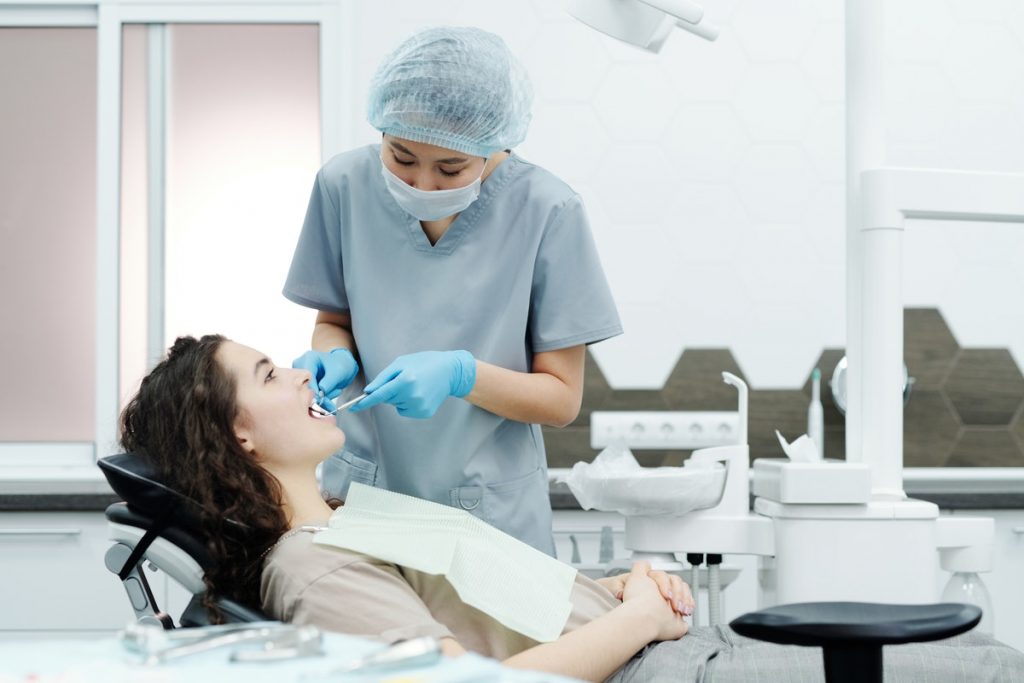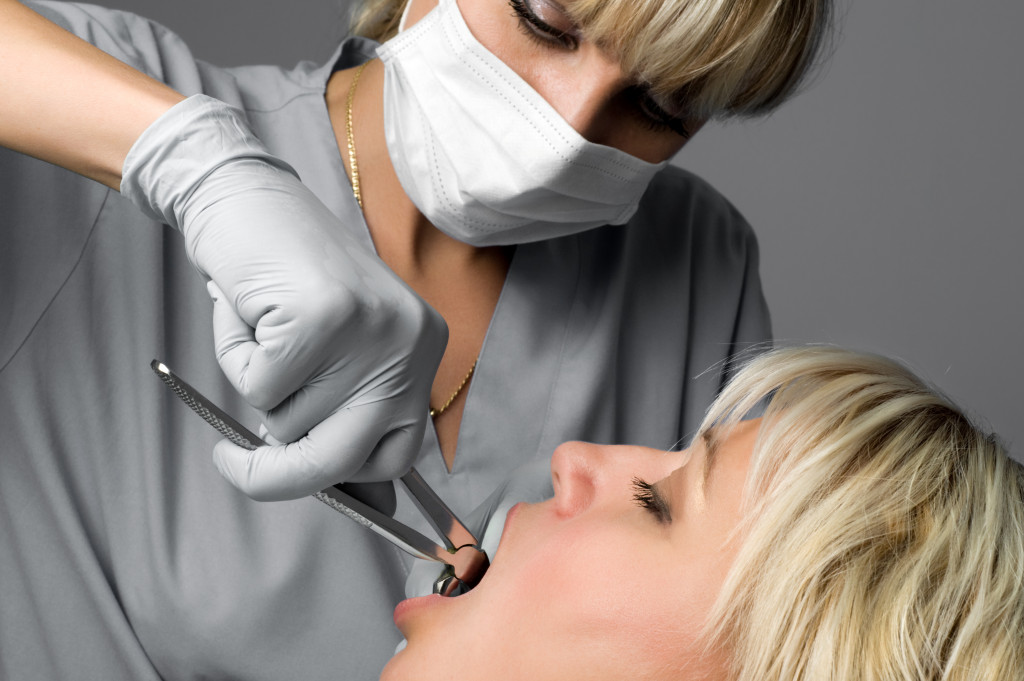When it comes to dental emergencies, it’s important to take swift and immediate action. In most cases, you’ll want to call your dentist for an emergency appointment, but there are a few things you can do in the meantime to ease the pain and help stabilize the tooth or teeth in question. Here are a few tips on what to do if you experience a dental emergency.
Use a cold compress on the affected tooth or teeth and/or use ice to help manage pain
If you are experiencing pain from a dental emergency, using a cold compress can help to manage the pain. Place a cold compress on the affected tooth or teeth, and hold it in place as long as possible. You can also use ice to help manage the pain. Place a bag of ice cubes over the area that is hurting, and leave it in place for as long as you can. This will help to reduce the swelling and manage the pain.
You can also use cold water to rinse your mouth if you are experiencing pain from a dental emergency. Rinse your mouth with cold water for a few minutes, and spit it out. Repeat this as often as necessary to help manage the pain.
Rinse your mouth with saltwater to reduce swelling of the area(s) surrounding the impacted tooth
Rinsing with salt water is a cheap and easy way to help reduce the swelling in your mouth. It also has antibacterial properties that can help soothe any pain located in the throat or gums.
You can use salt and a glass of lukewarm water to create the rinse, or you may already have an antiseptic mouthwash on hand that will work just as well. Swish the mixture around your mouth for 30 seconds to a minute, then spit it out.
Take an over-the-counter pain medication like ibuprofen, acetaminophen, or naproxen
Pain relief medications like ibuprofen, acetaminophen, and naproxen all work by stopping the production of prostaglandins. Prostaglandins are a type of hormone produced during the inflammatory process. When you take an OTC medication to relieve pain, it blocks the production of these hormones and calms down inflammation in your body.
This can be helpful in managing the pain associated with a dental emergency. Just be sure to follow the package instructions for dosage, and do not take more than the recommended amount.
If the tooth is knocked out, try to find it and place it back in the socket if possible
If you experience a dental emergency and one of your teeth is knocked out, try to find the tooth and place it back in the socket if possible. This is the best option for preserving the tooth, as it will help reduce the chances of infection and keep the root intact.
If you are unable to find the tooth or if it is broken, keep it in a cup of milk or saline solution. This will help preserve the tooth and keep it from becoming contaminated. Of course, you need to go to the dentist as soon as possible to have the tooth re-implanted.
Use dental wax or sugarless gum to cover a loose wire or sharp edge
If you have a loose wire or sharp edge from a dental appliance, you can use dental wax or sugarless gum to cover it. This will help protect your gums and tongue from being cut or scraped.
You’ll want to call your dentist as soon as possible to have the appliance repaired or replaced. In the meantime, using wax or gum to cover the sharp edges will help you avoid any pain or discomfort.
See your dentist as soon as possible for evaluation and treatment
If you experience a dental emergency, it’s important to see your dentist as soon as possible for evaluation and treatment. Dental emergencies can include things like a toothache, a broken tooth, or a lost filling. If left untreated, these issues can lead to further dental problems and even pain and discomfort. In most cases, your dentist will be able to see you the same day for an emergency appointment.
Depending on the extent of your dental emergency, you might need emergency procedures. These can include things like a TMJ implant, root canal, a tooth extraction, or a filling. Emergency procedures are usually more costly than regular dental procedures, so be sure to ask your dentist about costs before treatment.
Conclusion
These are just a few tips on what to do in the event of a dental emergency. Be sure to call your dentist right away for further instructions and to schedule an appointment. Time is of the essence when it comes to dental emergencies, so don’t delay in seeking treatment!

